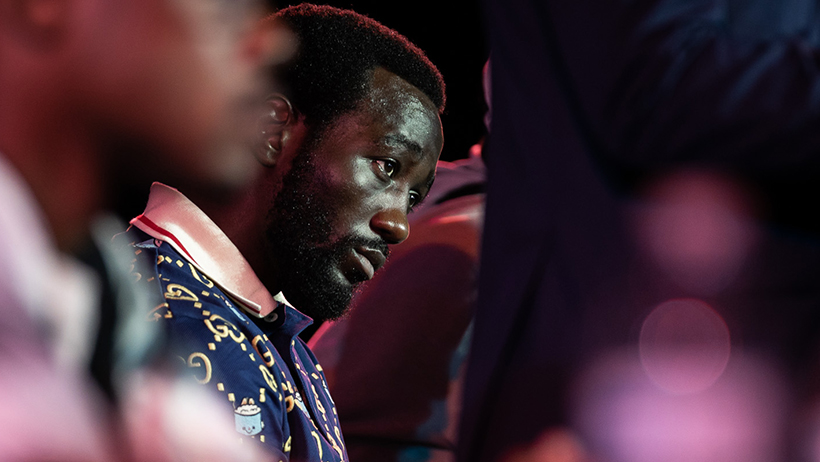BEING an introvert in life necessitates the creation of various hiding places and a repertoire of excuses for not attending events. Mastering both is essential for navigating the world as an introvert. However, it is important to note that finding hiding places has become increasingly difficult in a world where disappearing is equivalent to dying. Nowadays, everybody wants to be seen and heard and stand out. Extroverts and attention-seekers have the tools to ensure they are noticed, which means that choosing not to seek the same attention will result in being labeled as cold, detached, dour, or troubled. In most cases, what appears to be coldness is simply an effort to stay warm, even if it is just within one’s own body (the last remaining and truly safe hiding place). Furthermore, choosing to say nothing is sometimes a response to everyone else saying everything, leaving no room for more words in the world. In this sense, it becomes a form of protest – peaceful yet violent. For some introverts, silence is not due to a lack of thought or words, but rather a reluctance to engage in a losing battle, a refusal to participate in a game that only rewards those who shout the loudest and refuse to listen to any other voices.
Danish philosopher Søren Kierkegaard once asked, “What is talkativeness? It is the result of doing away with the vital distinction between talking and keeping silent. Only someone who knows how to remain essentially silent can truly talk – and act essentially. Silence is the essence of inwardness, of the inner life. Mere gossip anticipates real talk, and to express what is still in thought weakens action by forestalling it. But someone who can truly talk, because he knows how to remain silent, will not talk about a variety of things but about one thing only, and he will know when to talk and when to remain silent. “Where mere scope is concerned, talkativeness wins the day, it jabbers on incessantly about everything and nothing… In a passionate age great events (for they correspond to each other) give people something to talk about. And when the event is over, and silence follows, there is still something to remember and to think about while one remains silent. But talkativeness is afraid of the silence which reveals its emptiness.”
This weekend, Terence Crawford, who is more inclined towards introversion, will face the challenges of Las Vegas. Crawford is comfortable in his hometown of Omaha, Nebraska, where he feels a sense of belonging and familiarity. However, he now finds himself in a place where only the loudest and most fake individuals seem to thrive and survive. This move has happened relatively late in his career, possibly due to his age of 35 and his established ways. Therefore, the opportunity to headline a major Las Vegas event as a pay-per-view attraction is only now becoming a reality for Crawford, with an equally prominent rival by his side to guide him towards the demanding crowd.
Stephen Espinoza, the President of Showtime Sports, acknowledges the diverse nature of superstars and states that Crawford’s lack of marketability could be allayed if he delivers an impressive performance against Errol Spence this weekend. Espinoza notes that not every superstar fits a specific mold, using examples from the NBA. Crawford, like Michael Jordan and Steph Curry, relies on the impact of his performances rather than flamboyant personalities to captivate audiences. Espinoza believes that Crawford has embraced the need to promote himself more but still struggles with it. However, he acknowledges that Crawford’s increased presence outside the ring allows people to better appreciate his talent inside the ring, securing the long-term recognition he desires.
Throughout his career, Crawford has let his boxing skills do the talking. The sounds of his punches landing on opponents and the resulting pain are what define him. In addition to his technical abilities, one memorable moment from his fight against Ricky Burns in Glasgow, Scotland, was an interview with Sky Sports. During the interview, Crawford appeared cautious and avoided eye contact, as if he were overwhelmed by the magnitude of the event or had a secret to protect. It turned out that the latter was true. Crawford, at the age of 25, knew that he would express himself in the ring against Burns and did not feel the need to say much. And express himself he did. Suddenly, he found his voice and spoke eloquently, in every language known to man, primarily through the universal language of boxing. Crawford became recognized as one of the most articulate boxers of the last decade, capturing the attention of audiences with his limited yet impactful words.
Billy Nelson, who was in Burns’ corner that night in 2014, commends Crawford for his professionalism and class throughout his career. While some fighters resort to theatrics and chaos during weigh-ins and promotions, Crawford remains composed. Nelson believes that these fighters lack the quality and class that Crawford possesses inside the ring. Crawford’s ability to speak through his actions rather than his words is what sets him apart as the best fighter in the world.
In conclusion, as an introvert, Crawford has embraced the challenge of promoting himself outside the ring to ensure he receives the recognition he deserves for his boxing skills. Despite the late start, he has become more comfortable with self-promotion, although it still does not come naturally to him. Crawford’s dedication to remaining true to himself while competing in a world that often rewards extraversion has made him a unique figure in the sport of boxing.
Source link
